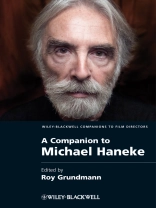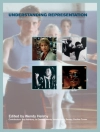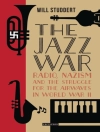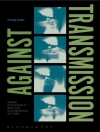A Companion to Michael Haneke
With a new preface addressing the Academy award-winning film, Amour, this new-in-paper edition has established itself as the definitive collection on Michael Haneke–from his early work in television and theater, through his prodigious cinematic output, to his 2009 triumph at Cannes.
A Companion to Michael Haneke brings together essays by leading film scholars, as well as interviews with the director himself, to probe the provocative and controversial themes that have formed the nucleus of Haneke’s work–intergenerational dysfunction and social alienation, colonialism and citizenship, surveillance and pornography, mass culture and media violence. The volume also offers a critical examination of the auteur’s oeuvre, including Three Paths to the Lake, Lemmings, Benny’s Video, The Piano Teacher, Caché, Funny Games, and the 2009 Palme d’Or winner, The White Ribbon.
Tabella dei contenuti
Notes on Contributors viii
Acknowledgments xiv
Introduction: Haneke’s Anachronism 1
Roy Grundmann
Part I Critical and Topical Approaches to Haneke’s Cinema51
1 Performative Self-Contradictions: Michael Haneke’s Mind Games53
Thomas Elsaesser
2 Five Tapes, Four Halls, Two Dreams: Vicissitudes of Surveillant Narration in Michael Haneke’s Caché75
Thomas Y. Levin
3 Infectious Images: Haneke, Cameron, Egoyan, and the Dueling Epistemologies of Video and Film 91
Vinzenz Hediger
4 Tracking Code Unknown 113
Tom Conley
5 Michael Haneke and the New Subjectivity: Architecture and Film124
Peter Eisenman
6 Games Haneke Plays: Reality and Performance 130
Brigitte Peucker
7 Figures of Disgust 147
Christa Blümlinger
8 Without Music: On Caché 161
Michel Chion
9 Fighting the Melodramatic Condition: Haneke’s Polemics168
Jörg Metelmann
10 ‘Mourning for the Gods Who Have Died’: The Role of Religionin Michael Haneke’s Glaciation Trilogy 187
Gregor Thuswaldner
Part II The Television Films 203
11 A Melancholy Labor of Love, or Film Adaptation as Translation: Three Paths to the Lake 205
Fatima Naqvi
12 Michael Haneke and the Television Years: A Reading of Lemmings 227
Peter Brunette
13 Variations on Themes: Spheres and Space in Haneke’s Variation 243
Monica Filimon and Fatima Naqvi
14 Projecting Desire, Rewriting Cinematic Memory: Gender and German Reconstruction in Michael Haneke’s Fraulein 263
Tobias Nagl
15 (Don’t) Look Now: Hallucinatory Art History in Who Was Edgar Allan? 279
Janelle Blankenship
16 Bureaucracy and Visual Style 301
Brian Price
Part III The German-Language Theatrical Features 321
17 Structures of Glaciation: Gaze, Perspective, and Gestus in the Films of Michael Haneke 323
Georg Seeßlen
18 The Void at the Center of Things: Figures of Identity in Michael Haneke’s Glaciation Trilogy 337
Peter J. Schwartz
19 How to Do Things with Violences 354
Eugenie Brinkema
20 Between Adorno and Lyotard: Michael Haneke’s Aesthetic of Fragmentation 371
Roy Grundmann
21 Hollywood Endgames 420
Leland Monk
Part IV The French-Language Theatrical Features 439
22 Class Conflict and Urban Public Space: Haneke and Mass Transit 441
Barton Byg
23 Multicultural Encounters in Haneke’s French-Language Cinema455
Alex Lykidis
24 Haneke’s Secession: Perspectivism and Anti-Nihilism in Code Unknown and Caché 477
Kevin L. Stoehr
25 The Unknown Piano Teacher 495
Charles Warren
26 Discordant Desires, Violent Refrains: La Pianiste (The Piano Teacher) 511
Jean Ma
27 Civilization’s Endless Shadow: Haneke’s Time of the Wolf 532
Evan Torner
28 The Intertextual and Discursive Origins of Terror in Michael Haneke’s Caché 551
T. Jefferson Kline
Part V Michael Haneke Speaks 563
29 Terror and Utopia of Form: Robert Bresson’s Au hasard Balthazar 565
Michael Haneke
30 Violence and the Media 575
Michael Haneke
31 The World That Is Known: An Interview with Michael Haneke580
Christopher Sharrett
32 Unsentimental Education: An Interview with Michael Haneke591
Roy Grundmann
Filmography 607
Index 619
Circa l’autore
Roy Grundmann is Associate Professor of Film Studies, and Film Studies Program Director in the Department of Film and Television, Boston University. He is co-editor of the four-volume Blackwell History of American Film.












